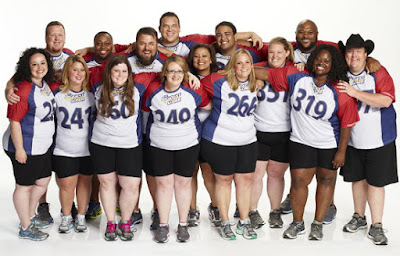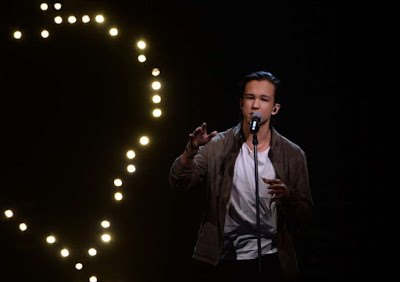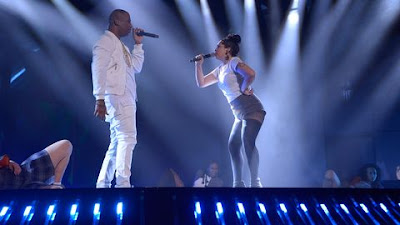For a long time I have been planning to put down my thoughts about the changing face of the Eurovision Song Contest. So here they are. Warning: it's a very long post, and
there will be some constructive criticism ahead.
My life as an ESC fan.
Firstly, before you all rush to complain, let me explain something. I have been a massive fan of the Eurovision Song Contest for over 40 years now. I couldn't imagine life without it; what was once a one-night event transformed into an year-round obsession. Months of national finals and selections, followed by the contest itself, followed by the analysis, followed by that thing called Post-Eurovision Depression (PED) - let me tell you, it
does exist! - and then it starts all over again.
If anyone around me dares to criticise the Eurovision Song Contest, I will immediately put them right. I will tell them that the contest has changed, it is a modern, relevant television event with commercial and credible songs which people actually like enough to download - even here in the ESC-phobic UK!
The Eurovision Song Contest is constantly evolving. The 61st contest is just days away. But if I'm honest, the contest has lost its identity somewhere along the way. It's not just ESC itself either: national finals season in 2016 did not hold its usual appeal for me. Granted, I had a number of other distractions going on at the time, but the overwhelming feeling was just disappointment. Where were all the great/catchy/distinctive songs? Where were those "wow!" moments? Week after week brought so many songs which weren't great, weren't bad, but just....
there. I usually take a large number of songs from national finals and continue to play them long after ESC season is over; but there are very few songs standing out from 2016 season, and even some of those took a long time to grow on me.
Perhaps all that is a reflection of what, for me, is now the main thing which is wrong with the Eurovision Song Contest. There's too much emphasis on the vision, rather than the song.
Euro-VISION.
After last year's contest, I wrote a post stating that although I preferred "Grande Amore" to "Heroes", I thought "Heroes" was the right winner for the modern-day contest - a contemporary song, with a dazzling and memorable visual presentation. As in every ESC, the following year's songs/staging/presentation are inevitably influenced by the previous year's winner. So following Conchita's big ballad win, a barrage of ballads were inflicted on us. After Måns' victory last year it was inevitable that a number of entries would follow in his wake and focus (more than is necessary) on the visual impact. This year, the visual gimmicks are being taken to a whole new level. Just as I predicted.
It's not a new thing: the visuals have always been important at ESC, but I would argue that the visual aspect now seems to be the main focus of ESC, to the detriment of the songs. Yet there would be no ESC without songs!
Gimmicks are nothing new. There have always been daft gimmicks, unusual clothes, quirky dance routines. But nowadays, it's taken to a whole new and often ridiculous level, as each country looks for new and challenging ways to impress the viewing public. However, one person's visually dynamic presentation is another person's sensory overload. Sometimes you reach the point where enough is enough, and channelling Father Ted for a moment, you're thinking "just sing the f*****g song" and to hell with the flashing lights, the visual effects, the dress projections, the holograms, the irritating backdrops, the interpretive contemporary dance....etc etc.
And then, there are the clothes. An outfit can make or break your chances of qualifying. Looking at some ridiculous outfits from this year's rehearsal clips, I just wonder if these these people have learned nothing from Moje 3? Or are they perhaps more interested in a Barbara Dex award than a place in the final? Bad styling has always been a 'thing' in ESC but with such a strong focus on the visuals in today's contest, "what were they thinking??" is a phrase which increasingly comes to mind. A dress/suit/outfit should complement your performance, not distract from it.
The modern-day ESC is a triumph of slick production and technical excellence, and the visual effects, styling and overall package play a crucial part in where a song will end up on that scoreboard. (So I guess if you can't beat them, join them ..... I've even overhauled my grumpy old method of marking ESC entries and will introduce a new marking system this year to reflect other aspects apart from the song). However I can't help but hark back to the "old" Eurovision when you had an actual stage set, with only minimal movement, and the most "visual effects" which you could expect were subtle changes in lighting. The main focus was on the song, and the vocal performance of it. There was little opportunity to enhance the song, unless you threw in a few props or a daft little dance routine. And that was that.
Change
is necessary. Everything has to evolve to survive. ESC wouldn't have made it to 60 years without those vital changes. And I certainly wouldn't want the contest to go back to the days of the type of invited audiences who were, in the words of the late great John Lennon, "rattling their jewellery". That was the most significant, and positive change, in the contest's evolution; allowing the fans to attend gave the contest a terrific new dynamic.
Four other factors in the evolution of the ESC since the late 1990s have had a dramatic impact on the contest:
1: The internet.
2: Televoting.
3: The abolition of compulsory native language.
4: The abolition of the orchestra in favour of backing tracks.
I am very positive about the first two aspects - the internet gave ESC a whole new lease of life and turned the contest into a year-round event. (On a personal note, it also introduced me to lots of wonderful people who share my ESC obsession). As for televoting, despite the usual criticisms/allegations, I just love the idea of being able to vote for my favourite song(s) every year. There will be big changes to the voting this year, yet again, but televoting will never be abolished. Like the internet, it is an interactive and inclusive aspect which keeps the contest alive.
As a long-term fan, the third and fourth aspects did have an impact on my enjoyment of the contest. What really sparked my interest in ESC, even as a child, was hearing songs sung in a foreign language. Of course free language isn't a new thing, we've had it in various incarnations in the 60s and 70s, and continuously since 1999. But there are fewer than ever native language songs in the 2016 contest. That doesn't please me at all, but it's also a reflection of a wider trend within European music, where English appears to be the chosen language, and the "globalisation" of music over the past 5 or 6 years, where every singles chart features the same songs.....
Contrast that with a trend over the same period in Sweden, where a number of artists, from the most commercial and popular to the obscure and alternative, have elected to record songs in their native language and enjoyed great success as a result. If Sweden was not so focused on winning again and rushing to topple Ireland as all-time ESC champions, I just wish they would have the balls to send a native-language entry. Dream on, huh?
One other very irritating thing has arisen in recent years across national finals and ESC - the number of songs by songwriters from other countries who submit numerous songs to different competitions. The same names keep popping up, year after year, all across the continent during national finals season. And when it comes to ESC itself, the "bought-in" syndrome is very evident. The best-known example of this is Azerbaijan. Their debut entry from 2008, "Day After Day" may not have been to everyone's taste, but crucially, it was a 100% home-grown songwriting product. Since that time, Swedish songwriters have provided the Aze entry every year. Whilst that suggests a clear hunger to win, it's also a slap in the face to that country's domestic songwriters.
If I ruled Eurovision world....
It would never happen but I would love to see more native-language songs at ESC. Perhaps a system could be introduced where countries would have to send a song in their own language every second year? Or perhaps more controversially, a points incentive where countries would be rewarded for sending native-language entries and therefore give them more chance to qualify from the semi-finals? But like I said, that will never happen!
So the orchestra will never come back, I know that. Like Monaco and Luxembourg at ESC, it belongs to another generation. But I would like to suggest that all artists competing in a particular year's ESC could be given the opportunity to re-record their song with an orchestral backing track and choose whether to use this version or the usual studio version. I acknowledge that there are many songs which do not benefit from the addition of an orchestra, but there are many others which would be completely transformed and enhanced by the orchestral backing track,.
I would also change the rules on songwriters. Abolish the current system and instead, songwriters must be a native of the country for whom they are writing a song. This could encourage and motivate "local" songwriters to up their game and submit quality songs rather than being overlooked in favour of all the usual international songwriting suspects. I'd also change the rules in national finals whereby each songwriter or songwriting team is only allowed to submit one entry to their national contest each year. In my recent Eurovision Memories post on the 1985 contest, I noted that the songwriters were featured in the postcards. Eurovision used to be a songwriters' contest - they got the trophy, rather than the artist singing their song - and perhaps a rule change like the one suggested above would give songwriters from all over Europe an incentive to raise their profiles in the contest.
Can you feel the fan power coming your way?
In the modern-day Eurovision Song Contest, the fan power cannot be underestimated. Thanks to social media, songs can be chosen in national finals and then dumped in favour of something else as a result of fan power. This year that resulted in Malta's song being replaced, whilst San Marino got a disco remix.
I'm delighted that Eurovision is picking up a new generation of young fans which will hopefully ensure the contest's popularity for many, many years to come. I just wonder if all those from the fan community who fill social media with all that "YAAS SLAY QUEEN SLAY!!" nonsense (I guess I'm just too old for this game!) will stick around in years to come or will they move onto the next passing fad? However, Eurovision is not a passing fad - it's for life. And it inspires insane levels of loyalty and devotion.
Social media, which has fuelled ESC fandom like nothing else, also breeds insane levels of intolerance, and the dark side of this came to the fore on two occasions this year; following the shock result in Poland, where fan fave (and potential ESC winner in their eyes) Margaret didn't win, the resulting furore and many of the comments afterwards made me feel quite ashamed to be part of the fan community. Ditto Frans' win in Sweden. Being a Eurovision fan is a privilege and it also brings responsibility. We are not just fans, we are ambassadors for our often-criticised event. We need to stick together, and I'm saddened if the future of our fandom is going to be characterised by the "haters" turning against their fellow ESC fans, just because we like, or don't like, a song or a country it is representing. Everyone is entitled to their own opinion and should be allowed to express it.
But I also want to highlight the positive side of social media. I have many good friends on Twitter who share my love of ESC. Whether they are tweeting from the host city or from home, they all bring the contest alive every year and have given it such a special dimension for me.
The problem with the songs
The best thing about following Eurovision, and all the national finals prior to it, is that it has always provided us with an opportunity to discover new music, new artists, and a welcome alternative to the increasingly tedious chart fodder of the 21st century.
The Eurovision Song Contest in recent years has become so risk-averse and safe, with very, very few exceptions to that rule. My main criticism of 2016 national finals season was that so many songs were so generic, lacking any specific national characteristics, or were "inspired by..." other songs from the past year's Top 40 rather than trying to offer something original, quirky, alternative or what is increasingly becoming an endangered species at ESC - a catchy, melodic pop song which you can sing along with and remember after just one hearing. That was once the criteria for an uptempo ESC contender.
This year's template appears to be the mid-tempo ballad - Sia's "Chandelier". Now I have a big problem with this, because I really can't stand that song at all. Even now, it still enjoys heavy rotation on radio, and where would a million talent shows be without it?
That song leaves me cold. And so do all the songs in this year's competition which are inspired by it. A great ballad should give you chills, not leave you cold.
Bring back the pop!
Take a look at any top 40 chart in Europe. Pop music these days has been redefined. You'll find the usual EDM, tropical house, r'n'b, rap, and all the same old generic mush masquerading as pop music. But pure pop music, in the way I define it, is missing. Anything which is catchy, even "cheesy", with a memorable chorus you can sing along with, is described as "dated". I've heard that description this year and in previous years about some ESC entries. Well, give me "dated" any day. I previously complained that the "melodi" had gone out of the Melodifestivalen songs, well I guess the same could be said for ESC. And before you ask, I'm not advocating the return of schlager but a few more good tunes would be nice.
Bring back the fun!
A couple of years ago, whilst watching ESC with me, my late mum was complaining about how the fun had gone out of the contest, and how it had become very serious. At that point I became all indignant and went on about how the songs need to be more credible, how we couldn't go back to the boom-bang-a-ding-a-dong nonsense which many people in this country still associate the contest with.
On the plus side, ESC is now free of all those silly/novelty songs; but a little bit of enjoyment in songs or performances wouldn't go amiss. There is a lot of pretentiousness in ESC now. Last year's ballads, and this year's "Chandelier"-a-likes mean that the fun factor is at an all-time low So whatever you think of him, give thanks for Serhat this year, and raise a smile when he sings that line which we all know as "I got to pee inside your mind..."
But joking aside, a bit of enjoyment wouldn't go amiss. Yes, modern Eurovision is a very serious business, but apart from the ballads, a number of songs are clinically, cynically manufactured to win at all costs; they try too hard and lack any natural charm. In previous years on this blog I have highlighted the importance of the need to "connect" with the viewers; something which is often missed out in the rush to technical excellence. Get that connection right and the votes are guaranteed.
Let's get back to the songs.
Judging by the rehearsal clips I've seen so far, ESC 2016 is all visual gimmicks, and sadly lacking in substance. Perhaps it's time to get back to basics, back to less-is-more, back to
songs. We need to reclaim ESC as the Eurovision
Song Contest rather than the Euro-
vision Song Contest. Whilst maintaining a high level of visual entertainment, there just needs to be a better balance between both aspects. In the meantime though, I have to swallow my grumpy old pride. Despite all my moans and groans, the Eurovision Song Contest is still the world's greatest annual event and as long as I live, I will always be a fan. And it will always be "my" contest, my obsession. That will never change :)
















































